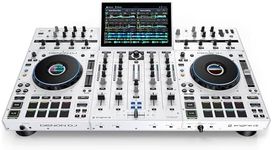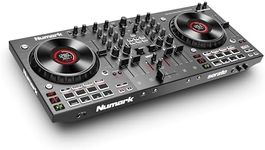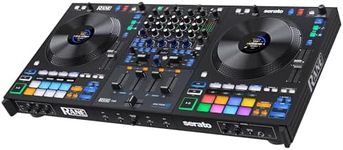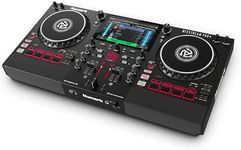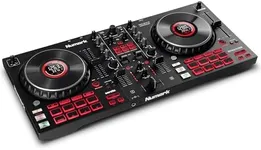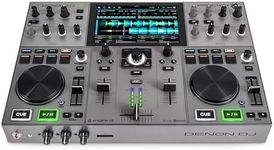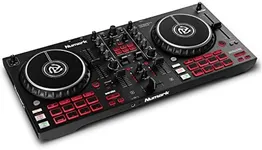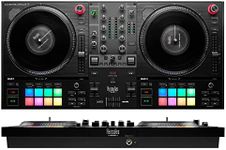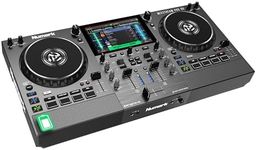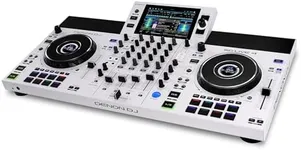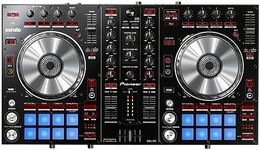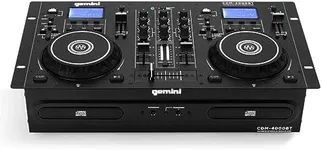Buying Guide for the Best Dj Decks
Choosing the right DJ deck is crucial for any aspiring or professional DJ. The right deck can enhance your performance, make mixing easier, and ensure you have all the features you need to create the perfect set. When selecting a DJ deck, it's important to consider several key specifications that will impact your experience and performance. Understanding these specs will help you make an informed decision and choose the best deck for your needs.Type of DeckDJ decks come in various types, including all-in-one controllers, modular setups, and traditional turntables. All-in-one controllers are great for beginners as they combine multiple functions into one device. Modular setups allow for more customization and are preferred by experienced DJs. Traditional turntables are ideal for those who prefer vinyl records and scratching. Your choice should depend on your level of experience and the type of DJing you plan to do.
Build QualityBuild quality refers to the materials and construction of the DJ deck. A well-built deck will be more durable and reliable, especially if you plan to transport it frequently. Look for decks made with high-quality materials like metal and sturdy plastic. If you are a mobile DJ or perform at various venues, a robust build is essential to withstand the rigors of travel and frequent use.
Number of ChannelsThe number of channels on a DJ deck determines how many audio sources you can mix simultaneously. Most beginner decks have two channels, which is sufficient for basic mixing. More advanced decks can have four or more channels, allowing for more complex mixes and the ability to incorporate additional audio sources like drum machines or samplers. Consider how many sources you plan to mix at once when choosing the number of channels.
Connectivity OptionsConnectivity options include the types of inputs and outputs available on the DJ deck. Common connections include USB ports, RCA inputs, XLR outputs, and headphone jacks. More connectivity options provide greater flexibility in connecting various audio equipment and external devices. Ensure the deck you choose has the necessary connections for your setup, including any additional gear you plan to use.
Software CompatibilityMany DJ decks are designed to work with specific DJ software, which can greatly enhance your mixing capabilities. Popular software includes Serato, Traktor, and Rekordbox. Check if the deck is compatible with your preferred software or if it comes with its own proprietary software. Compatibility with the software you are comfortable with or plan to use is crucial for a smooth and efficient workflow.
Performance FeaturesPerformance features include elements like jog wheels, pads, faders, and effects controls. These features allow you to manipulate and enhance your mixes creatively. Jog wheels are essential for scratching and beatmatching, while performance pads can trigger samples, loops, and hot cues. Consider what performance features are important to you based on your style of DJing and the techniques you want to use.
Display and InterfaceThe display and interface of a DJ deck can greatly affect your ease of use. A clear, well-organized display helps you keep track of your tracks, BPM, and other important information. Touchscreens and high-resolution displays can make navigation more intuitive. Choose a deck with an interface that you find easy to use and that provides all the information you need at a glance.
PortabilityPortability is an important factor if you plan to travel with your DJ deck. Lighter and more compact decks are easier to transport, but they may sacrifice some features or build quality. If you are a mobile DJ or frequently perform at different locations, consider a deck that balances portability with the necessary features and durability.
